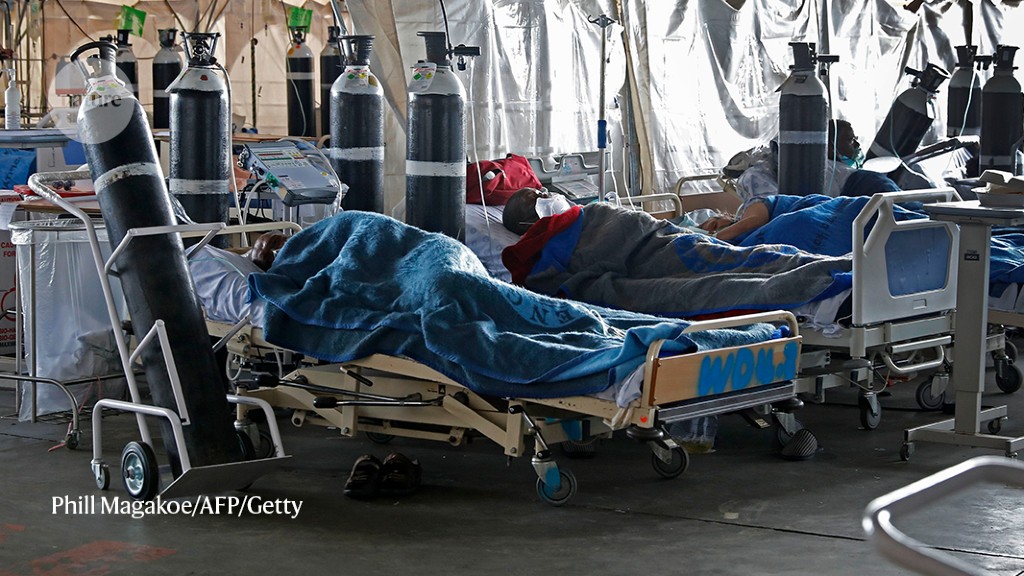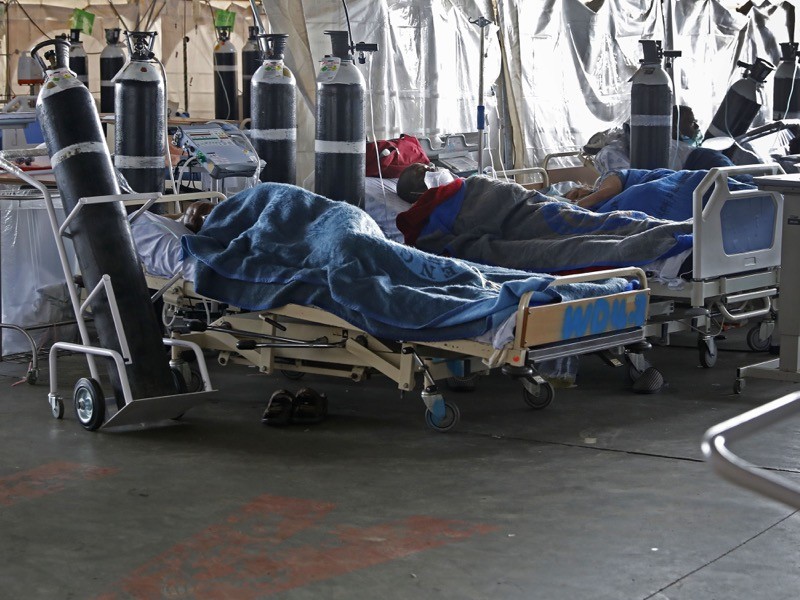People infected with the Beta coronavirus variant are more likely to need critical care and to die than are people infected with other variants1. The Beta variant, also known as B.1.351, was first identified in late 2020 in South Africa, where it sparked a second COVID-19 wave before spreading globally.
Some evidence has suggested that severe cases of COVID-19 were more common during South Africa’s Beta-driven second wave than during its first wave, caused by the ancestral version of SARS-CoV-2. To determine whether the Beta variant is linked to increased severity, Laith Jamal Abu-Raddad, an infectious-disease epidemiologist at Weill Cornell Medicine—Qatar in Doha, studied infected people in Qatar in early 2021.
During that period two variants were circulating: Beta and Alpha, which originated in the United Kingdom in 2020 and is also known as B.1.1.7. The team did not compare Beta with the Delta variant, which is now ripping through much of the world and which has also been linked to heightened severity.
People infected with Beta were 25% more likely than those infected with Alpha to develop severe disease , and around 50% more likely to require critical care, as well as 57% more likely to die. This fits with observations at the time, says Abu-Raddad. As Beta surged in Qatar, acute-care admissions doubled, and ICU admissions and deaths quadrupled. “It was very clear we were talking about a more severe variant,” he adds. The findings have not yet been peer reviewed.
The study was small, but it is important because its conclusions stem from a careful comparison of the outcomes of infections with different variants in people with similar characteristics, such as age and sex, says Waasila Jassat, a public health medicine specialist at the National Institute for Communicable Diseases in Johannesburg, South Africa. She led a study2 published in July that found that people were around 30% more likely to die after hospitalization during South Africa’s second wave than in its first. Pinning down Beta’s severity will help researchers to anticipate its effects on health-care systems, Jassat adds.
As the more-transmissible Delta variant spreads, Beta is now fading in many places where it was once dominant, including South Africa and Qatar. But Abu-Raddad notes that Beta seems to be more resistant to immunity generated by vaccines and previous infections than are other variants, including Delta, and it could begin wreaking havoc again. “We should never underestimate this pathogen.”







More News
Could bird flu in cows lead to a human outbreak? Slow response worries scientists
US halts funding to controversial virus-hunting group: what researchers think
How high-fat diets feed breast cancer